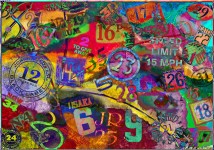Dr. Frank Wang, a SENCER community member affiliated with the SENCER Center for Innovation – MidAtlantic region and professor of mathematics at LaGuardia Community College, was recently interviewed on the CASTpod podcast hosted by Harold Washington College in Chicago. On the podcast, Dr. Wang discussed the NICHE, or Numeracy Infusion Course for Higher Education, project funded by the National Science Foundation.
Prior to NICHE’s inception, LaGuardia launched an intervention for its students who needed help with basic skills mathematics. Because students often struggled with “abstract” approaches to math instruction, LaGuardia used SENCER strategies to teach mathematics through public health issues and the environment, which helped put the disciplinary content into a specific real-world context. Dr. Wang’s NICHE work is inspired by this previous SENCER intervention, and embeds quantitative reasoning in courses across the curriculum.
The interviewer, Kristen Bivens, asked Professor Wang what has been an exemplary application of quantitative reasoning in the project so far. He cited the work of Ester Isabelle Wilder, the NICHE PI, who shows her sociology students that, by the numbers, there are more homeless white people than black people in the United States. However, since the white population is larger than the black population in the United States overall, it is more meaningful in this situation to look at the rates of homelessness between the two, rather than the numbers alone. This is an important lesson in how statistical thinking and quantitative literacy can help us clarify and address civic problems, one that is also addressed in Dr. Cindy Kaus’s Engaging Mathematics teaching manual Introductory Statistics with Student Designed Community-Based Projects, which can be a helpful resource for educators interested in incorporating racial profiling data into their classes.
To learn more about Dr. Wang’s NICHE project and how it relates to SENCER and other areas, and to hear Dr. Wang’s advice on creating positive student attitudes toward math, listen to the interview.
[soundcloud url=”https://api.soundcloud.com/tracks/250075599″ params=”auto_play=false&hide_related=false&show_comments=true&show_user=true&show_reposts=false&visual=true” width=”100%” height=”450″ iframe=”true” /]Photo credit: Mark Morgan (CC BY 2.0)




